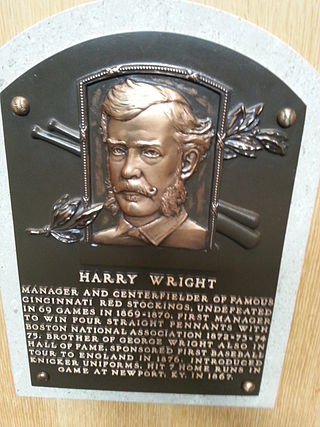
The Veterans Committee is the popular name of various committees of the National Baseball Hall of Fame and Museum that elect participants other than recently retired players.
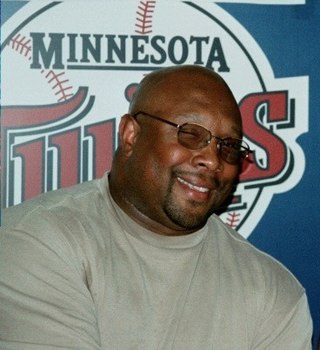
Elections to the Baseball Hall of Fame for 2001 followed the system in use since 1995. The Baseball Writers' Association of America (BBWAA) voted by mail to select from recent major league players and elected two: Kirby Puckett and Dave Winfield. The Veterans Committee met in closed sessions and selected two people from multiple classified ballots: Bill Mazeroski and Hilton Smith.
Elections to the Baseball Hall of Fame for 1999 followed the system in use since 1995. The Baseball Writers' Association of America (BBWAA) voted by mail to select from recent major league players and elected three: George Brett, Nolan Ryan, and Robin Yount. The Veterans Committee met in closed sessions and selected four people from multiple classified ballots: Orlando Cepeda, Nestor Chylak, Frank Selee, and Smokey Joe Williams.
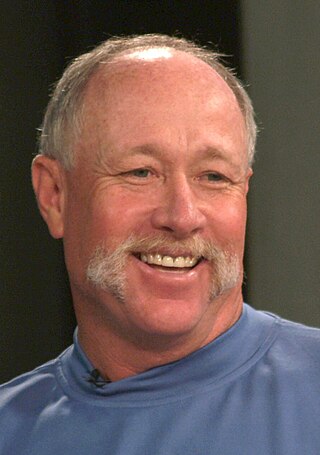
Elections to the Baseball Hall of Fame for 2008 proceeded according to revised rules enacted in 2001 and further revamped in 2007. The Baseball Writers' Association of America (BBWAA) held an election to select from among recent players, resulting in the induction of Goose Gossage. A restructured format for Veterans Committee voting resulted in the first successful election by that body since 2001, with five candidates earning induction, after the three elections in the intervening years had failed to produce any inductees. Selected by the Veterans Committee were former managers Billy Southworth and Dick Williams, and former executives Barney Dreyfuss, Bowie Kuhn, and Walter O'Malley.

Elections to the Baseball Hall of Fame for 1994 followed the system in place since 1978. The Baseball Writers' Association of America (BBWAA) voted by mail to select from recent major league players and elected Steve Carlton. The Veterans Committee met in closed sessions to consider older major league players as well as managers, umpires, executives, and figures from the Negro leagues. It selected two, Leo Durocher and Phil Rizzuto. A formal induction ceremony was held in Cooperstown, New York, on July 31, 1994.

Elections to the Baseball Hall of Fame for 1993 followed the system in place since 1978. The Baseball Writers' Association of America (BBWAA) voted by mail to select from recent major league players and elected Reggie Jackson. The Veterans Committee met in closed sessions to consider older major league players as well as managers, umpires, executives, and figures from the Negro leagues; it selected no one. A formal induction ceremony was held in Cooperstown, New York, on August 1, 1993.
Elections to the Baseball Hall of Fame for 1992 followed the system in place since 1978. The Baseball Writers' Association of America (BBWAA) voted by mail to select from recent major league players and elected two, Rollie Fingers and Tom Seaver. The Veterans Committee met in closed sessions to consider older major league players as well as managers, umpires, executives, and figures from the Negro leagues. It selected two, Bill McGowan and Hal Newhouser. A formal induction ceremony was held in Cooperstown, New York, on August 2, 1992.
Elections to the Baseball Hall of Fame for 1989 followed the system in place since 1978. The Baseball Writers' Association of America (BBWAA) voted by mail to select from recent major league players and elected two, Johnny Bench and Carl Yastrzemski. The Veterans Committee met in closed sessions to consider older major league players as well as managers, umpires, executives, and figures from the Negro leagues. It also selected two people, Al Barlick and Red Schoendienst. A formal induction ceremony was held in Cooperstown, New York, on July 23, 1989.
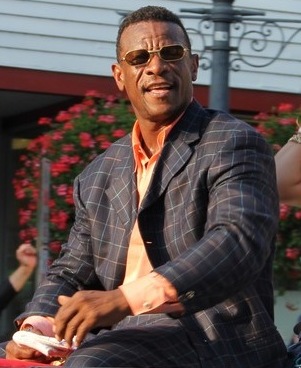
Elections to the Baseball Hall of Fame for 2009 proceeded according to revised rules enacted in 2001 and further revamped in 2007. The Baseball Writers' Association of America (BBWAA) held an election to select from among recent players, and elected Jim Rice and Rickey Henderson.
Elections to the National Baseball Hall of Fame and Museum for 1987 followed the system in place since 1978. The Baseball Writers' Association of America (BBWAA) voted by mail to select from recent major league players and elected two, Catfish Hunter and Billy Williams. The Veterans Committee met in closed sessions to consider older major league players as well as managers, umpires, executives, and figures from the Negro leagues. It selected Ray Dandridge from the Negro leagues. A formal induction ceremony was held in Cooperstown, New York, on July 26, 1987, with Commissioner of Baseball Peter Ueberroth in attendance.

Elections to the Baseball Hall of Fame for 1979 followed the system in place since 1978, except that players who appeared on fewer than 5% of BBWAA ballots would now no longer be eligible in future elections. The Baseball Writers' Association of America (BBWAA) voted by mail to select from recent major league players and elected Willie Mays. The Veterans Committee met in closed sessions to consider older major league players as well as managers, umpires, executives, and figures from the Negro leagues. It selected Warren Giles and Hack Wilson. A formal induction ceremony was held in Cooperstown, New York, on August 5, 1979, with Commissioner of Baseball Bowie Kuhn presiding. The annual Hall of Fame Game, an exhibition contest, was played the following day; this was the first time that the induction ceremony and game were held on different days.

Elections to the Baseball Hall of Fame for 1978 introduced a new system that would continue to 1994. The Baseball Writers' Association of America (BBWAA) voted by mail to select from recent major league players and elected Eddie Mathews. The Veterans Committee met in closed sessions to consider older major league players as well as managers, umpires, executives, and figures from the Negro leagues. It selected Addie Joss and Larry MacPhail. A formal induction ceremony was held in Cooperstown, New York, on August 7, 1978, with Commissioner of Baseball Bowie Kuhn presiding.
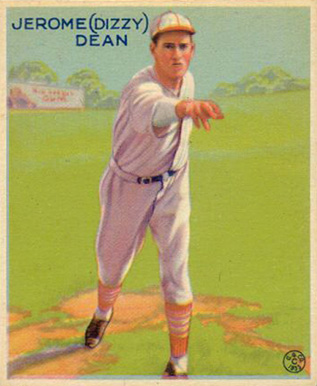
Elections to the Baseball Hall of Fame for 1953 followed a radically new procedure. The institution appointed its Committee on Baseball Veterans, the famous "Veterans Committee", to meet in person and consider pioneers and executives, managers, umpires, and earlier major league players. Committees in the 1930s and 1940s had chosen several pioneers and executives, but this was the first direction of anyone's attention to field personnel other than players, the managers and umpires.
Elections to the Baseball Hall of Fame for 1974 followed the system in place since 1971. The Baseball Writers' Association of America (BBWAA) voted by mail to select from recent major league players and elected two, Whitey Ford and Mickey Mantle. The Veterans Committee met in closed sessions to consider executives, managers, umpires, and earlier major league players. It selected three people: Jim Bottomley, Jocko Conlan, and Sam Thompson. The Negro Leagues Committee also met in person and selected Cool Papa Bell. A formal induction ceremony was held in Cooperstown, New York, on August 12, 1974, with Commissioner of Baseball Bowie Kuhn presiding.
Elections to the Baseball Hall of Fame for 1972 followed the system established one year earlier. The Baseball Writers' Association of America (BBWAA) voted by mail to select from recent major league players and elected three: Yogi Berra, Sandy Koufax, and Early Wynn. The Veterans Committee met in closed sessions to consider executives, managers, umpires, and earlier major league players. It also selected three people: Lefty Gomez, Will Harridge, and Ross Youngs. The Negro Leagues Committee met for the second time and selected Josh Gibson and Buck Leonard. A formal induction ceremony was held in Cooperstown, New York, on August 7, 1972, with Commissioner of Baseball Bowie Kuhn presiding.

Elections to the Baseball Hall of Fame for 1966 followed the system introduced for even-number years in 1956. The Baseball Writers' Association of America (BBWAA) voted by mail to select from recent major league players with provision for a second, "runoff" election in case of no winner. Ted Williams tallied more than 90% on the first ballot. Meanwhile, the Veterans Committee was meeting annually to consider executives, managers, umpires, and earlier major league players. It selected Casey Stengel. A formal induction ceremony was held in Cooperstown, New York, on July 25, 1966, with Commissioner of Baseball William Eckert presiding. During his acceptance speech, Williams advocated for the inclusion of Negro league baseball players, such as Satchel Paige and Josh Gibson, in the Hall of Fame. Paige was inducted in 1971, and Gibson in 1972.
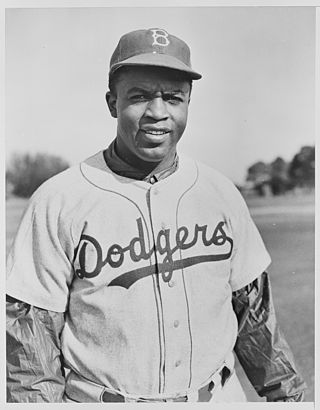
Elections to the Baseball Hall of Fame for 1962 followed a new system for even-number years. Since 1956 the Baseball Writers' Association of America (BBWAA) and Veterans Committee had alternated in their duties, but the BBWAA, voting by mail to select from recent major league players, had elected no one for 1958 and no one for 1960. Now there would be a second, "runoff" election in case of no winner. At the same time, the Veterans Committee resumed meeting annually to consider executives, managers, umpires, and earlier major league players.
Elections to the Baseball Hall of Fame for 1958 followed a system established after the 1956 election. The Baseball Writers' Association of America (BBWAA) voted by mail to select from recent major league players; they elected no one. The BBWAA was voting only in even-number years, with the Veterans Committee meeting only in odd-numbered years to consider older major league players as well as managers, umpires, and executives. For the first time since 1950, the induction ceremonies in Cooperstown, New York, were canceled because there was no one to induct, the second such occurrence in Hall of Fame history.

Elections to the Baseball Hall of Fame for 2010 proceeded according to rules enacted in 2001 and revised in 2007. As always, the Baseball Writers' Association of America (BBWAA) voted by mail to select from a ballot of recent players; one player was elected, Andre Dawson.
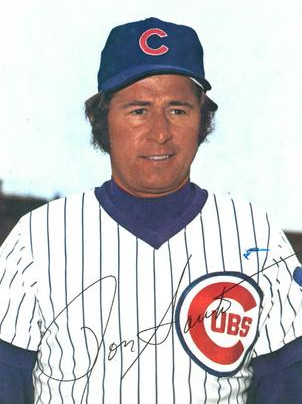
The Golden Era Committee was one of three 16-member committees appointed by the board of directors of the National Baseball Hall of Fame and Museum in 2010 to replace the National Baseball Hall of Fame Committee on Baseball Veterans, which had been formed in 1953. All of these committees were established to consider and elect eligible candidates to the Hall of Fame who were not elected via the Baseball Writers' Association of America (BBWAA) ballot.














